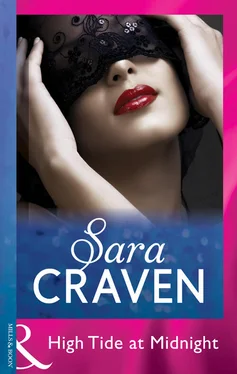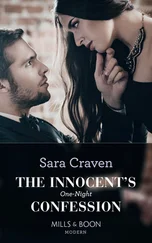‘Oh, my dear!’ Lady Kerslake’s lips parted in a smile of total insincerity. ‘As if we would expect you to do any such thing! What a silly girl you are, sometimes. Not, of course, that we would wish to interfere if you had made any plans. After all, you’re a grown woman now, and you have a life of your own to lead. It’s perfectly natural that you should want to be independent, and we don’t want to interfere, or feel that we’re holding you back in any way.’ She paused again, invitingly, as if waiting for Morwenna to confide in her. Her tone had been all interest and motherly concern, but Morwenna knew she would not have been deceived for an instant, even if she had not overheard that brief conversation in the drawing room. Cousin Patricia’s whole tone and attitude was hinting broadly that she had outstayed her welcome, and that they were waiting to hear what plans she had made to shift herself.
The humiliation of having to admit that she had no plans, and that even her embryo career as an artist had died an undistinguished death, was suddenly too much to bear. A germ of inspiration lodged in her brain, and before she could reason with herself or question the wisdom of what she was about to do, she spoke.
‘You really don’t have to bother about me any more, Cousin Patricia. I’d intended to tell you over lunch that I’m going away. I—I’ve been invited to stay at Trevennon—with my mother’s people—until I go to Carcassonne in the spring. The letter came this morning. It’s a wonderful opportunity for me. Cornwall’s a marvellous place for painters. My mother used to say that she got all the inspiration for her best work from her time at Trevennon,’ she ended, rushing her words nervously, as the thought occurred to her that Cousin Patricia might demand to see this mysterious invitation.
Lady Kerslake’s eyes rested wonderingly on the group of paintings over Morwenna’s shoulder, then came back to search her face rather frowningly. ‘Your mother had relatives in Cornwall? I wasn’t aware….’
‘Very distant relatives,’ Morwenna broke in. ‘Cousins heaven only knows how many times removed.’ Wildly she searched her memory for names that would add weight to her story. ‘It—it was Uncle Dominic who wrote to me.’ That was the name her mother had mentioned most of all. Dominic Trevennon who had taught the city-born girl to climb barefoot over the rocks, to row a boat, to fish, to lift the lobster pots and relieve them of their snapping contents. It had been Dominic too who had told her the legends that Morwenna remembered as bedtime stories. Tales of the ‘knackers’, the small malevolent spirits who inhabited the tin mines, whose tapping hammers presaged disasters, such as flooding or earthfalls. Tales of the galleon which had foundered off Spanish Cove during the storms that pursued the ill-fated Armada, and the gold it had carried, still to be found, Laura had said, among the sand of the cove by anyone reckless enough to climb down the cliff to search there and risk being cut off by the racing tide. And Morwenna had lain there round-eyed among the comfort of the blankets, hearing the screech of gulls and feeling the sand gritty under her bare toes as she delved among the shifting grains for the doubloons.
‘It all seems very sudden,’ Lady Kerslake was saying, her lips drawn into a thin line. ‘But I suppose you know what you’re doing. Have you met any of these—er—cousins before?’
‘No, but I feel I know them. My mother told me so much about them.’ Morwenna, guiltily conscious just how far this was from the truth, surreptitiously crossed her fingers in her jacket pockets.
‘Well, it’s very kind of them to offer you a home, under the circumstances,’ Lady Kerslake said sourly. ‘I do hope you won’t take advantage of their generosity, Morwenna. You can’t expect to be a burden on other people all your life, you know. But if it’s only until the spring, I don’t suppose it will matter too much.’ She gave a brisk nod. ‘Now, what about lunch?’
‘Oh, don’t bother about me.’ Morwenna’s nails dug deep into the palms of her hands. ‘I think I’ll go and see about my packing.’ Another meal in this house, she thought, would choke me.
‘As you wish,’ Lady Kerslake concurred, not troubling to hide her relief at the way the situation seemed to be resolving itself. She turned towards the door, then hesitated as if a thought had occurred to her. ‘If there are any of your mother’s paintings, Morwenna, that you would care to take with you, I hope you won’t hesitate to do so. Geoffrey and I were talking last night, and we agreed it would only be fair that you should have some keepsake of her, although there is no actual legal entitlement. I’m not suggesting, of course, that you should take any of the better-known canvases hanging downstairs, but if you want any of the pictures in this room you may have them. I don’t think they can be regarded as her best work by any means, but naturally they will be of sentimental value to you.’
If she had expected a show of delight, she was disappointed. Morwenna’s face was impassive and her few words of thanks merely polite. Lady Kerslake went away to arrange her lunch party reflecting that the girl was probably put out because she had not been allowed to take her pick of the more valuable paintings.
As soon as she could be sure that she had departed, Morwenna sank back again on the sofa, her legs shaking. She stared across the room at the painting of the lonely house on the bleak headland and her stomach contracted nervously. She thought wildly, ‘Oh, God, what have I done?’
She had always tended to be impulsive. It was a family trait, but it had never carried her to these lengths before. It had been impulsiveness that had led her to apply to the painting school. Many of the friends she had been at school with were rather desultorily pursuing careers as personal assistants or secretaries, but they seemed to be little more than glorified dogsbodies as far as Morwenna could see. Or they were helping to run boutiques, or serving in West End department stores. Somehow she had wanted more than that. And it hadn’t particularly pleased her when people said tolerantly, ‘Oh—Morwenna? Well, she’ll get married, of course,’ their eyes lingering appreciatively over her slender figure with the gently rounded hips and small, firm breasts.
She tried to control her whirling thoughts. After all, she wasn’t committed to going to Cornwall. Trevennon had been a let-out—the inspiration of the moment—something to save her face with Cousin Patricia. She didn’t have to actually do anything about it. Anyway, a wave of colour flooded her face, she couldn’t just wish herself on a group of strangers, in spite of her brave words to Lady Kerslake. She had no means of knowing whether the Dominic of whom her mother had spoken with such affection was still alive. He would be in his sixties at the very least, and the years that Laura Kerslake had spent at Trevennon would only be a distant memory.
She had sometimes wondered why her mother had not maintained contact with Trevennon over the years, but at the time it had never occurred to her to ask. She had been too young to consider the complexities of the situation, she thought, and after her mother’s death, too much probing into the past had never seemed quite appropriate. Besides, she had always had the feeling that her father had not shared her mother’s nostalgia for Cornwall. Nothing had ever been said, but the impression had been a strong one. Perhaps it had been nothing more than ordinary, and only too human jealousy of a time when she had lived and been happy without him, Morwenna thought wryly. Sir Robert’s love for his wife had been all-encompassing. But somehow she had felt the past was an area where she should not trespass with her questions, and now they could never be answered—unless of course she went to Trevennon herself.
Читать дальше












